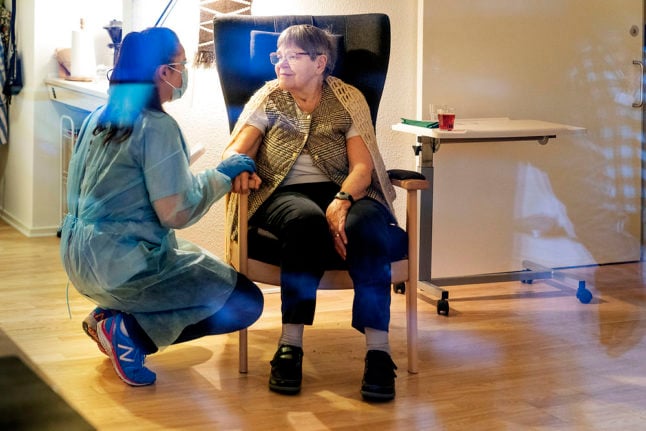The restrictions can be lifted at care homes where 80 percent of residents have received both doses of the coronavirus vaccine, the authority said in a notification.
The authority told Ritzau that the recommendation to lift visiting bans and restrictions at care homes would be given “concrete assessment”.
“What is new is that the Danish Health Authority, with this recommendation, supports the Danish Patient Safety Authority’s decision to lift visiting restrictions with a specified level for when the risk of a coronavirus outbreak amongst residents at, for example, a care home, is considered to be low,” Danish Health Authority head of department Bolette Søborg said in a written comment.
In addition to vaccination, current infection rates and infection rates over a longer period will form part of the criteria. Any previous outbreaks must have ended.
“Many older people have been isolated from their families and friends since the beginning of the epidemic,” Søborg said in a statement.
“There is no doubt that it would make a great difference for individuals to now be able to meet with family and friends again,” she added.
According to an update from the State Serum Institute on Thursday, care residences or care homes in just 12 towns in Denmark have under 80 percent of residents fully vaccinated.
For the majority of the country, between 85 and 95 percent of such residents have received both vaccinations.
READ ALSO: Denmark moves forward finish date for Covid-19 vaccinations and adjusts queue



 Please whitelist us to continue reading.
Please whitelist us to continue reading.
Member comments